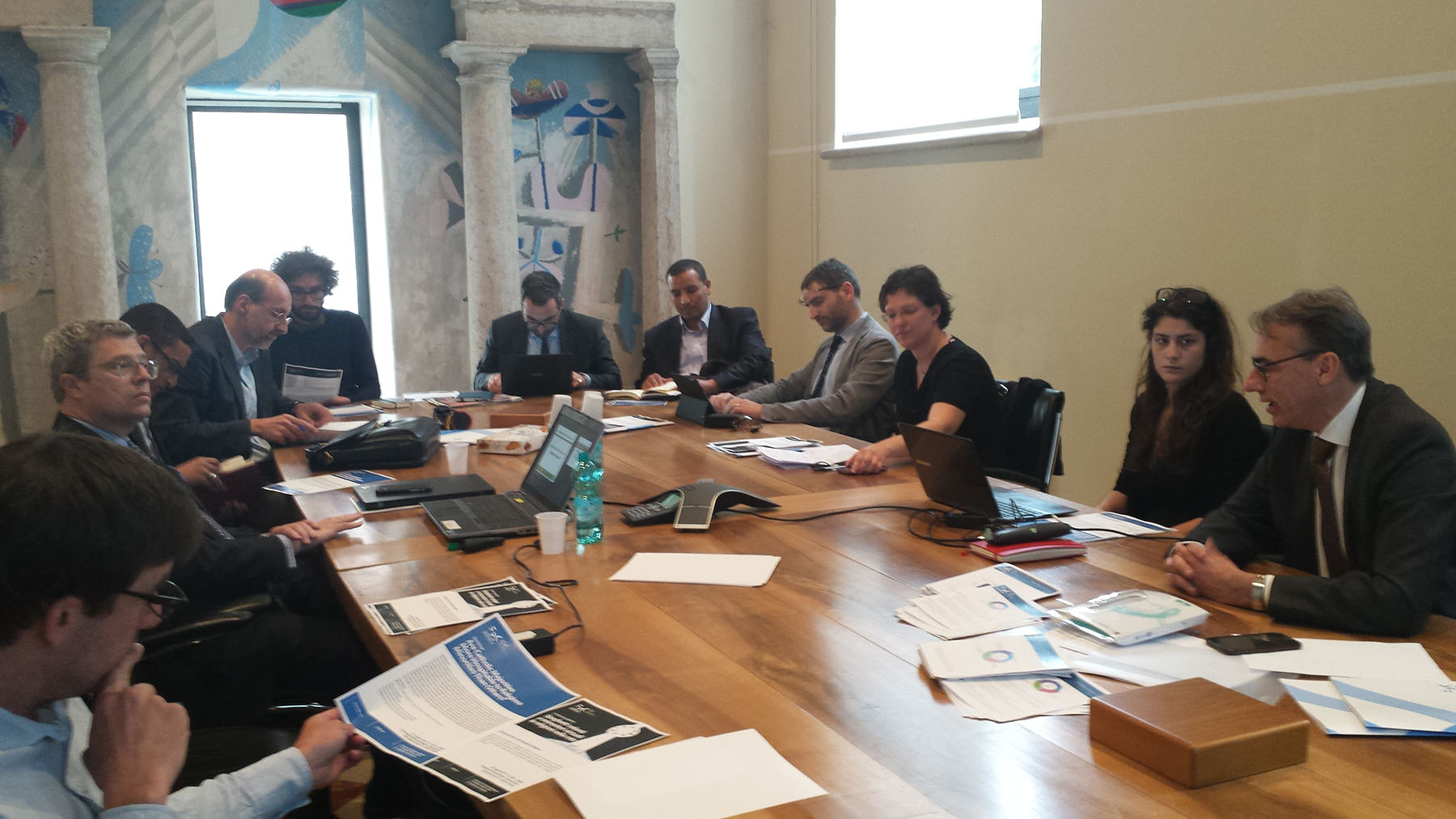“Are Catholic majorities more hospitable to religious minorities than others?” Brett Scharffs speaks in Trento, Italy on 13 April 2017

Are Catholic majorities more hospitable to religious minorities than others? This was the topic of Center Director Brett Scharffs’ presentation at the Fondazione Bruno Kessler on the 13th April 2017. He was joined by four panelists, Paolo Costa, FBK-ISR, Roberto Toniatti and Cinzia Piciocchi both of the University of Trento Law School, and Andrea Pin of the University of Padova Law School.
From the abstract: It is hard to believe it is a coincidence that when we look at the patterns of restriction of religious freedom that exist around the world, including legal restrictions and social hostilities, in places with high or very high restrictions, there is almost always a dominant religious group that is a majority or supermajority. But there are no countries with high or very high legal restrictions and very few countries with high social hostilities that have a Catholic majority or supermajority. This provides a powerful invitation for those of us who live in countries with high restrictions to reflect upon the role that the dominant religious groups may have in perpetuating those restrictions, and the potential role that those dominant religious group may have in overcoming those patterns of restriction and hostility. Among the most important resources for promoting religious freedom will be religious reasons and doctrines found within religious traditions. Freedom of thought, conscience, and belief is most likely to be promoted when dominant religious groups find within their own religious traditions the resources and arguments in defense of freedom, conscience, and human dignity. Many religious traditions, including Orthodox Christian, Muslim, Buddhist, and Hindu, can look to the experience of the Catholic Church for insight and inspiration.
Marco Ventura, Director of the Centre for Religious Studies, Fondazione Bruno Kessler, and a longtime friend of the Center thanked Professor Scharffs for his participation. He said, “Over its 40 years of existence our Center has witnessed the possibility and benefits of an alliance between creative research and the experience of faith. You gave a remarkable contribution to our effort.”